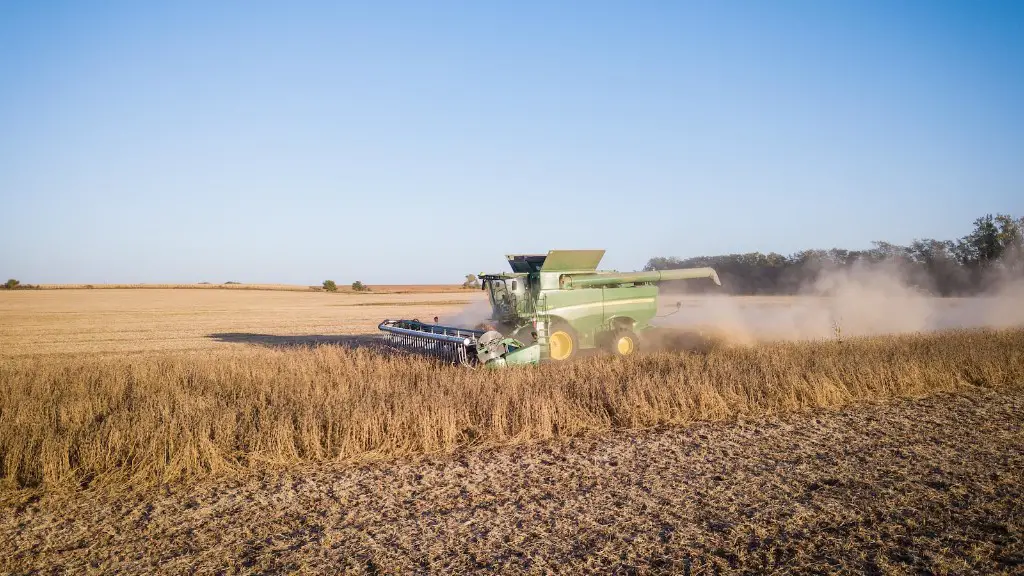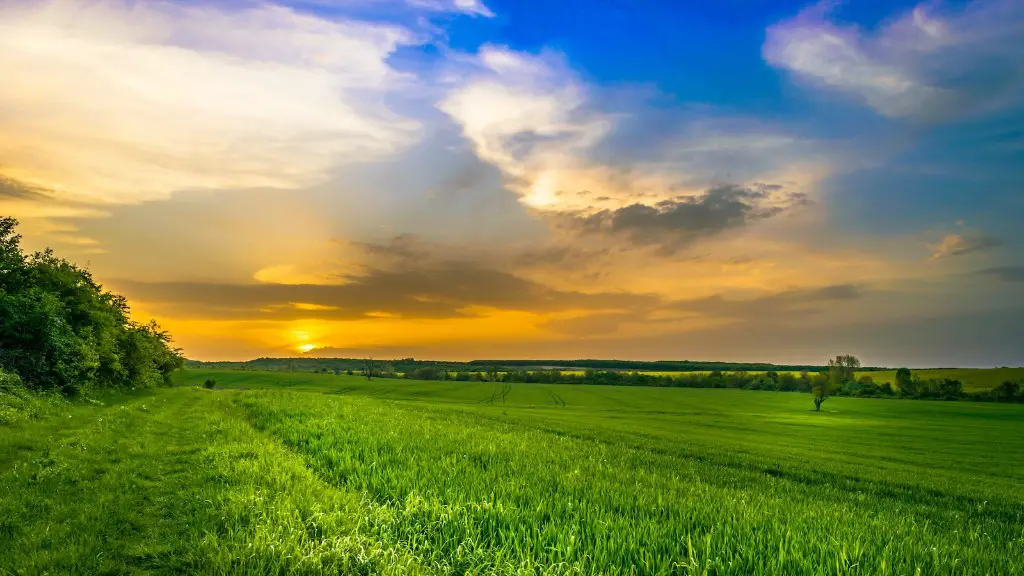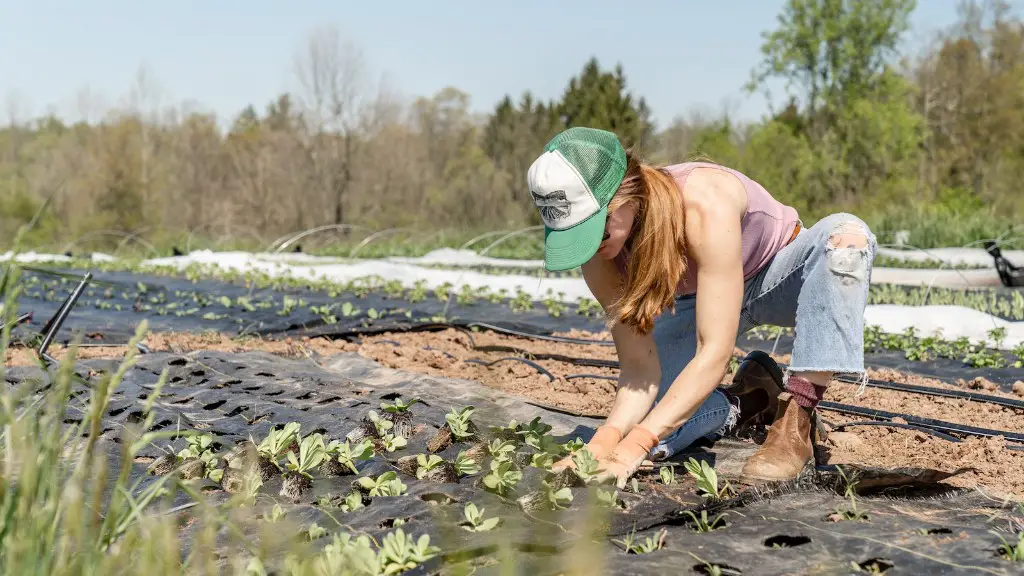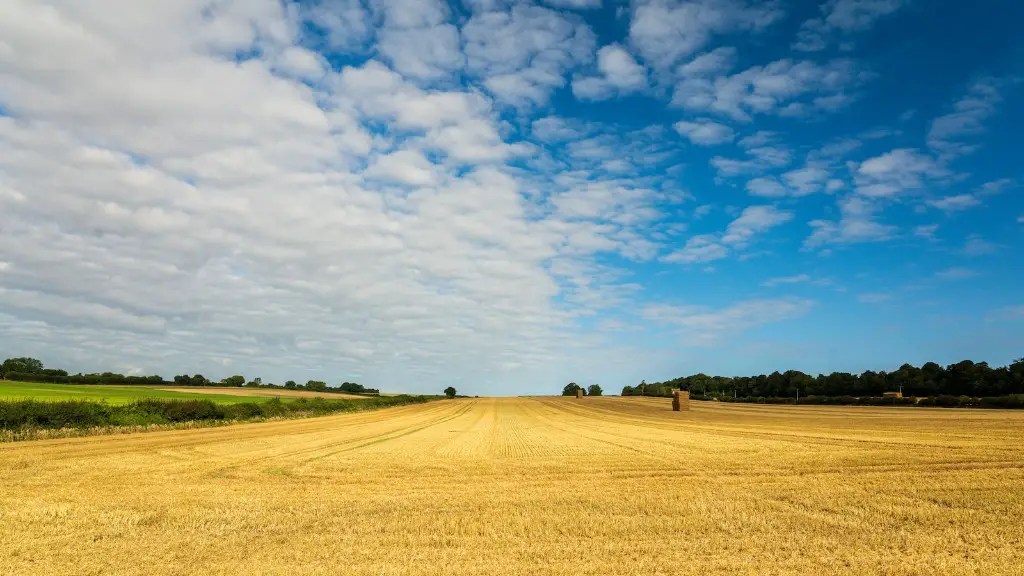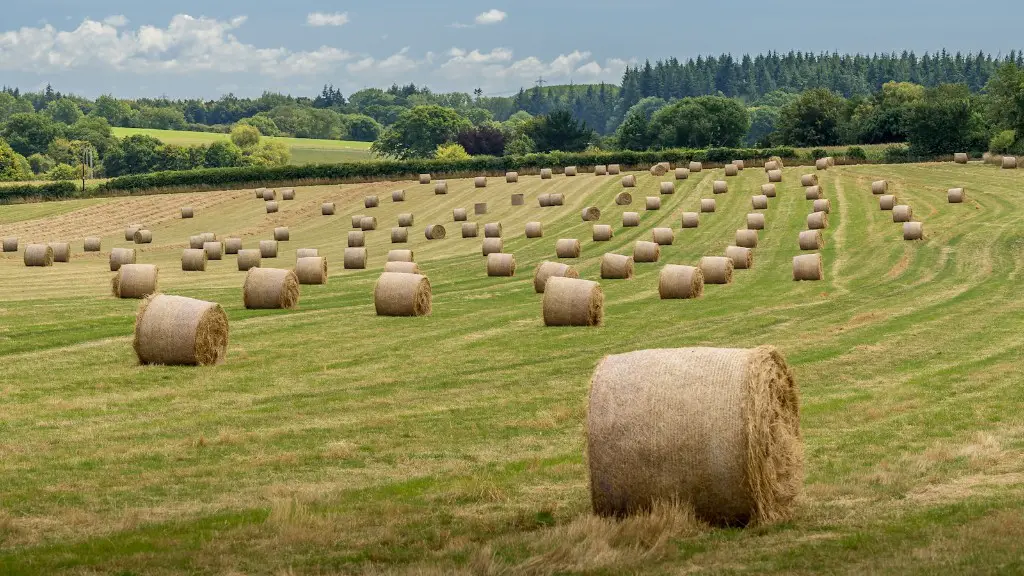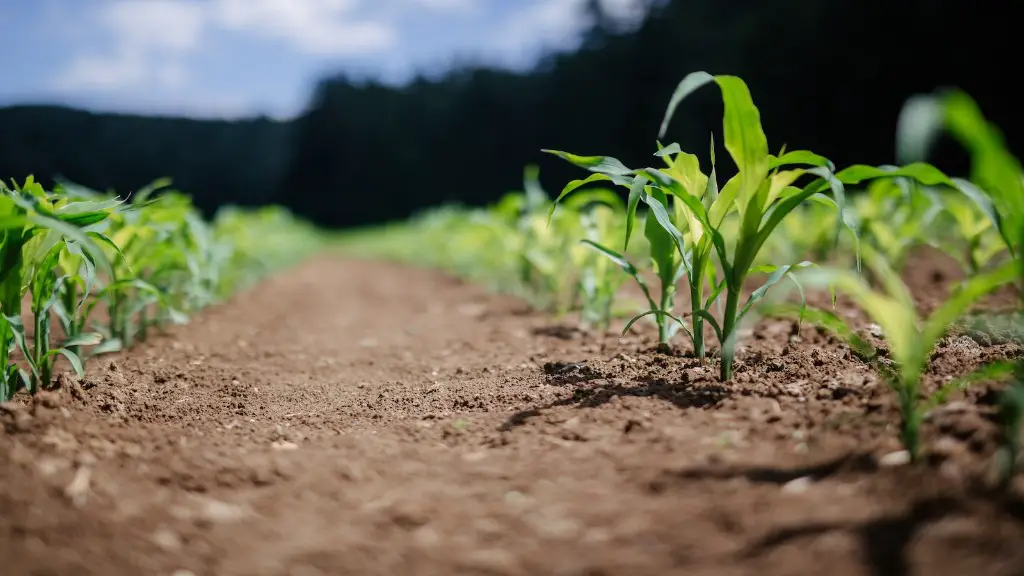Pollination is one of the most important processes in agriculture as it helps to ensure the successful production of crops. Fruits and vegetables need to be pollinated in order to produce seeds, which are then used to grow new plants. Pollination also helps to improve the quality of fruits and vegetables. without pollination, many crops would not be able to grow and yield a good harvest.
Pollination is important to agriculture because it is a process that allows plants to reproduce. Pollination occurs when pollen from the male plant fertilizes the female plant. This produces a seed, which is then used to grow a new plant.
Why is pollination important?
Pollination is essential for the survival of humans and all terrestrial ecosystems. Of the 1,400 crop plants grown around the world, almost 80% require pollination by animals. Pollinators are essential for the production of food and plant-based industrial products. Without pollinators, the human race and all of earth’s terrestrial ecosystems would not survive.
Pollinators are essential to our food supply and ecosystems, yet they are declining at an alarming rate. YOU can help by planting native flowers and creating habitat for them in your yard or community. Every little bit helps!
Which pollinators are most important to agriculture
Pollination services from honey bees and other insects are critical to ensuring our diets are diverse and plentiful with fruits, nuts, and vegetables. In all, there are over 100 crops grown in the United States that depend on pollination. Without these pollinators, we would lose a significant portion of our food supply.
Pollination is a vital process in plant reproduction, whereby pollen from a flower’s anthers (the male part of the plant) is transferred to the stigma (the female part) of another flower. This process results in the fertilization of the flower, which then yields fruit and seeds. Pollination is typically carried out by bees, butterflies, moths, birds, and bats.
How does pollination affect agriculture?
Pollination by insects is a crucial ecosystem service that is necessary for the production of most crops. This includes crops that provide essential micronutrients, making pollination essential for food security.
Pollination is a key process in plant reproduction, as it allows for the transfer of pollen from the male anthers of a flower to the female stigma. This process is essential for the creation of seeds, which are necessary for the next generation of plants. without pollination, plants would be unable to reproduce and would eventually die out.
What will happen if there is no pollination?
If flowers are not pollinated, they will not be fertilized and will not produce fruit or seeds. The flower will age and die without producing any seeds.
If we lose all the plants that bees pollinate, we could also lose all the animals that eat those plants. This would have a devastating effect on the global human population, as our supermarkets would only have half the amount of fruit and vegetables. We need to do everything we can to protect bees and other pollinators, so that we can maintain a healthy and sustainable world.
How much do pollinators contribute to agriculture
One out of every three bites of our food, including fruits, vegetables, chocolate, coffee, nuts, and spices, is created with the help of pollinators. In order to protect these important creatures, we must take care of their habitats and provide them with the resources they need to thrive.
Pollination from honey bees, native bees, and flies deliver billions of dollars in economic value every year. Between $235 and $577 billion (US) worth of annual global food production relies on their contribution.
Why are bees important to agriculture as they?
Bees play a vital role in the ecosystem by pollinating plants. According to the FAO, a third of the world’s food production is dependent on bees. Without bees, many food crops would not be able to reproduce, leading to a decrease in food production.
The process of pollination is important for the maintenance of genetic diversity in a population. It also helps to produce adequate fruits for the dispersal of seeds. Pollination is essential for the ecological functioning of the earth and the terrestrial ecosystems.
What role do pollinators play in crop production
Pollinators are key players in the crop yield process, as plants rely on them to transfer pollen in cross-pollination. For example, incorporating both wild and managed bee species in a region could enhance cross-pollination.
Pollination is a process that is essential for the reproduction of many plants. Pollination occurs when pollen from the male part of a plant (the stamen) is transferred to the female part of the plant (the pistil). This transfer of pollen usually takes place via an animal, such as a bee or butterfly.
The value of pollination is mainly indirect. That is, it is not something that is directly used by humans. Instead, pollination is important for maintaining agricultural production and natural ecosystems. These, in turn, provide a range of benefits to society – both material and non-material.
The material benefits of pollination include the production of food, fiber, and fuel. Pollination is responsible for the production of about one-third of the world’s food, including fruits, vegetables, nuts, and seeds. The non-material benefits of pollination include the aesthetic value of plants, the role of pollinators in controlling pests, and the contribution of pollination to biodiversity.
In short, the value of pollination is essential for the functioning of many ecosystems and the well-being of human society.
Can a plant reproduce without pollination?
Asexual reproduction is a type of reproduction by which offspring arise from a single parent, and inherit the genes of that parent only. Asexual reproduction is the primary form of reproduction for single-celled organisms such as bacteria, and is also a method of reproduction for some plants and fungi.
There are several advantages of asexual reproduction. One is that it is a faster method of reproduction than sexual reproduction, since there is no need for mating or for the production of eggs and sperm. Additionally, because asexual reproduction results in genetically identical offspring, it can be used to produce plants that are sturdier and have a higher rate of maturity than those produced through sexual reproduction.
Pollination is essential for the growth and production of many crops around the world. Pollinators can increase crop yield by 24 per cent in small, diverse farms. Additionally, pollinators also improve the quality of fruits and vegetables. Well-pollinated plants tend to have larger and more uniform fruits.
Can we survive without pollinators Why
Pollinators play a vital role in the ecosystem and are essential to the survival of many plant and animal species. Without them, we would not be able to live.
Self pollination is the process by which a plant’s pollen fertilizes its own ovules. This can happen either by the pollen coming into contact with the stigma of the same flower (autogamy), or by transferring pollen from the anther to the stigma of the same flower (geitonogamy). Geitonogamy can also occur between different flowers on the same plant (e.g. between the flowers on a single head of broccoli).
Cross pollination, on the other hand, is the process by which pollen from one plant fertilizes the ovules of another plant. This usually happens when bees or other insects transfer pollen from the anther of one flower to the stigma of another.
There are advantages and disadvantages to both self and cross pollination. Self pollination guarantees that seed will be produced, but the resulting seeds may be less diverse (and thus less resilient) than those produced by cross pollination. Self pollination can also be used as a safeguard mechanism for cross-pollinated flowers – if pollen from a different plant is not available, the flower can still be pollinated by its own pollen.
Cross pollination, while perhaps producing more diverse and resilient seeds, also carries the risk that the
Final Words
Pollination is important to agriculture because it is responsible for the transfer of pollen from the male reproductive organ or stamen of a flower to the female reproductive organ or pistil. This process is essential for the fertilization of plant seeds and the production of fruits and vegetables.
Pollination is important to agriculture because it helps transfer pollen from the male organ or stamen of a flower to the female organ or pistil. This process helps plants reproduce and ultimately produce the fruits, vegetables, and nuts that we eat.
